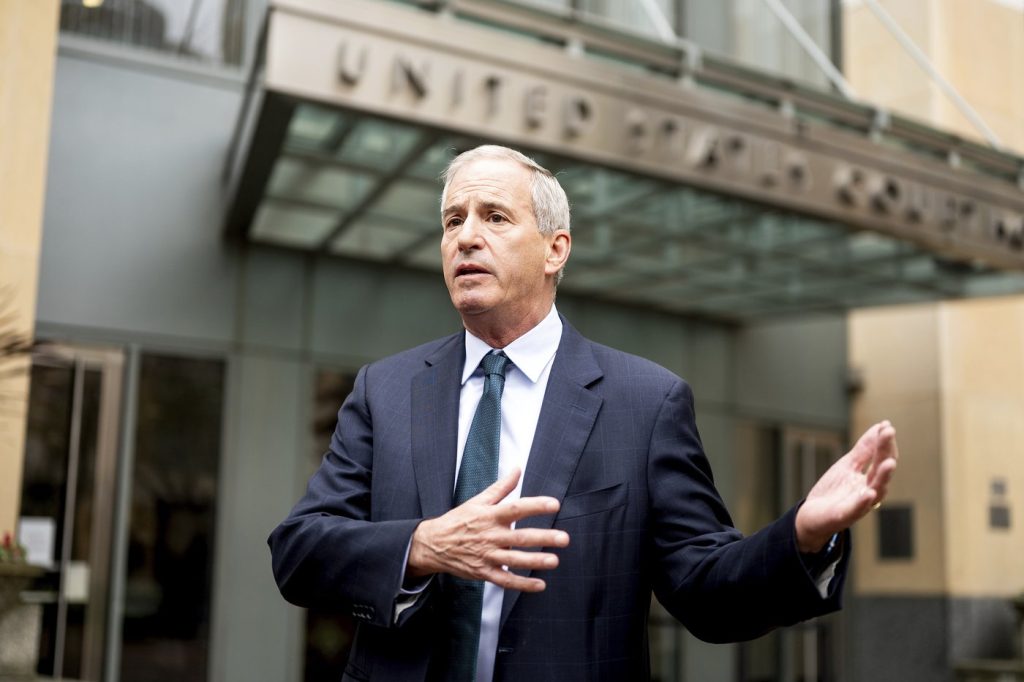The attorneys who successfully navigated the landmark antitrust lawsuit on behalf of hundreds of thousands of college athletes are set to receive just over $475 million in legal fees, a figure that could potentially increase to more than $725 million over the next decade. This request for plaintiffs' legal fees in the House vs. NCAA case was outlined in a December court filing and has been approved by U.S. District Judge Claudia Wilken.
Co-lead counsels Steve Berman and Jeffrey Kessler requested $475.2 million, which constitutes 18.3% of the total cash common funds amounting to $2.596 billion. Additionally, they are seeking another $250 million based on estimates suggesting an additional $20 billion in direct benefits to athletes over the ten-year settlement period. This would ultimately represent 3.2% of what could be a combined total of $22.596 billion.
Judge Wilken praised the efforts of Class Counsel, stating that they have represented student-athletes in multiple litigations challenging NCAA restrictions on compensation, achieving extraordinary results in the process. Christine Bartholomew, a law professor at the University of Buffalo and researcher of class-action settlements, noted that the requested legal fees could be considered relatively low when compared to typical cases, which often award plaintiffs' attorneys up to 30% of common funds.
Class-action lawsuits typically involve attorneys who work on a contingency basis, meaning they receive payment only if the class secures a financial settlement. Bartholomew emphasized that although the initial figures may seem high, they are not unusual within the context of contingency litigation, especially given the complexities involved in this particular case.
The original complaint was filed in June 2020, and it took until November 2023 for Judge Wilken to grant class certification, indicating that the case had sufficient merit to advance. Catherine Dunham, a law professor at Elon University, highlighted the challenges of obtaining class certification in complex cases, noting that firms undertaking such cases assume significant risks and generally cannot engage in other work during litigation.
The law firm Hagens Berman reported dedicating nearly 34,000 staff hours to the case through mid-December 2024. Co-lead counsel Steve Berman logged 1,116.5 hours at a rate of $1,350 per hour, while Jeffrey Kessler recorded 1,624 hours at $1,980 per hour. The case involved an extensive discovery process, with defendants—including the NCAA, Atlantic Coast Conference (ACC), Big Ten, Big 12, Pac-12, and Southeastern Conference (SEC)—producing hundreds of thousands of documents totaling millions of pages.
Berman and Kessler elaborated that the plaintiffs had to contend with six well-resourced defendants and their prominent law firms, necessitating extensive written discovery, depositions, expert submissions, and lengthy briefings. Furthermore, the counsel had to manage legislative challenges aiming to undermine these cases.
Since the enactment of the U.S. Class Action Fairness Act in 2005, antitrust class-action lawsuits have become increasingly difficult to win. Bartholomew indicated that federal courts tend to exhibit a pro-defendant stance, making it essential for plaintiffs' firms to recover their costs and secure fees after years of challenging litigation.
Overall, the developments in this antitrust lawsuit signify not only substantial potential financial gains for the attorneys involved but also a significant movement in the collegiate sports landscape regarding athlete compensation rights.











